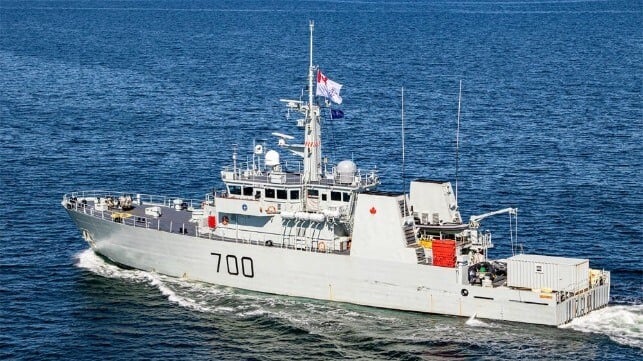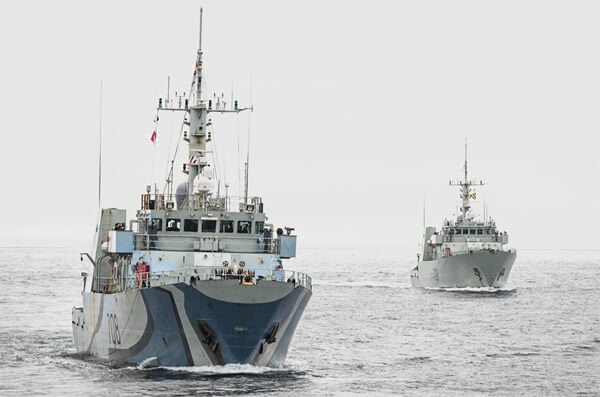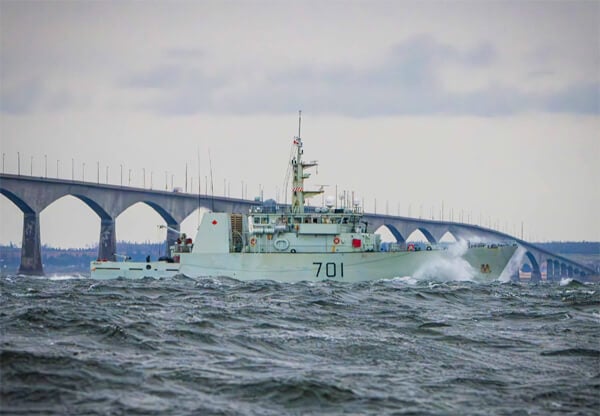Canada to Retire Aging Kingston Warships as it Plans Fleet Modernization

The Royal Canadian Navy (RCN) intends to retire eight warships that have been instrumental in coastal surveillance and patrol for more than three decades. It is the latest move in the Navy’s ongoing plan to modernize its fleet to meet evolving maritime threats.
RCN announced that before the end of the year, eight Kingston-class Maritime Coastal Defense Vessels (MCDVs) will be decommissioned. The eight vessels are part of the 12 Kingston-class warships built and launched in the 1990s, with each being 55.3 meters (181 feet) long, about 970 tonnes displacement, and with a crew capacity of 40. The ships are powered by diesel-electric engines with a reported speed of 15 knots. The first ship, HMCS Kingston was commissioned in 1996 and the last, HMCS Summerside, in 1999.
For three decades, their primary task has been carrying out coastal surveillance and patrol duties, including general naval operations and exercises, minesweeping, search and rescue, law enforcement, resource protection, and fisheries patrols. The ships have also conducted nuclear submarine escorts, national and international exercises, and have supported the training of several naval occupations.

Over their lifetime, the warships have been deployed in various operations in the Eastern Pacific and Caribbean, West Africa, European waters, and across Canadian waters. The warships have also been deployed off the coast of Haiti in response to the growing national security crisis in that country.
This fall, HMC Shawinigan, Summerside, Goose Bay, Glace Bay, Kingston, Saskatoon, Whitehorse, and Brandon will be retired with the Navy intending to carry out “paying off” ceremonies in Halifax and Esquimalt, B.C. After the decommissioning ceremony, ownership of the vessels will then be transferred from the RCN to the Department of National Defense for eventual disposal.
Four other Kingston-class vessels, Yellowknife, Edmonton, Moncton, and Nanaimo, will remain in service by consolidating under Canadian Fleet Atlantic. They are set for decommissioning from 2026 through 2028.
RCN highlights that the impending retirement of the warships falls in line with its fleet modernization program to meet the evolving needs of a security environment that has become increasingly dangerous and complex. Part of the modernization includes the building of 15 River-class destroyers at Halifax-based Irving Shipbuilding with the first ship expected to be delivered in the early 2030s.

“Kingston-class vessels have provided the RCN with a significant, impactful, and flexible capability throughout their many years of service. As we move towards the future of the RCN, I want to recognize the service of these ships and extend my tremendous gratitude to all who have sailed within them,” said Vice-Admiral Angus Topshee, RCN Commander.
RCN is ensuring a seamless transition with the Kingston-class roles being transferred to existing ships. The naval mine counter-measure roles will be carried out by the diving units, and remote and autonomous systems operated from other RCN vessels, while roles like counter-narcotics operations will be handled by the Harry DeWolf-class Arctic and Offshore Vessels. The training role will be assumed by an expanded fleet of Orca-class vessels.
